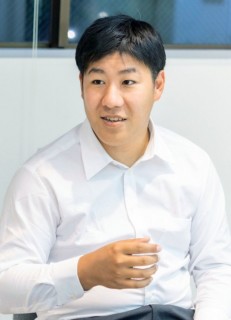Loading
Search
▼ Young Chinese Entrepreneurs Starting New Businesses In Japan
- Category:Other
Young Chinese entrepreneurs and others with family roots in China are becoming increasingly active participants in Japan's startup sector, leveraging Japanese manufacturing skills alongside their social connections in the greater China region to start new businesses and drive innovation.
The trend is being fueled by increased support for entrepreneurs through the hosting of startup business contests amid a rise in Chinese people deciding to launch companies in Japan, where they have developed strong relationships and gained experience from studying while avoiding stiff competition back in China.
Sun Xiaojun, the 35-year-old president of BionicM Inc., is one such entrepreneur. His Tokyo-based company manufactures high-tech prosthetic legs that enable power-generated movement and control through humanoid robotics technology. "A lot of Japanese technologies have been incorporated into this artificial leg," he said.
Sun had his leg amputated at the age of 9 after suffering from bone cancer and wears a prosthesis himself. He came to Japan as an exchange student and founded his company in 2018 after working at several firms.
BionicM produces the main body of their prosthesis in China but procures semiconductors and other precision components in Japan. The product is the result of working together with his Japanese team to develop the project through rigorous testing. "Japanese people's pursuit of quality is amazing," he said.
Their product was designed with the aim of making a prosthetic leg that their customers would feel proud to show off. "Just like how Tesla has changed the world with electric vehicles, we want to change popular perceptions of artificial legs," said Sun, adding that the firm is also eyeing a move into the U.S. market.
Another young entrepreneur with Chinese roots in Japan is Luo Youhong, 30, the founder and president of Tokyo Inc., which offers digital elevator advertisements.
"The business model in China has become sophisticated as a result of competition. There are many things to be learned from China, as was the case when Japanese envoys were sent to the country under the Tang Dynasty (618-907)," Luo said.
The trend is being fueled by increased support for entrepreneurs through the hosting of startup business contests amid a rise in Chinese people deciding to launch companies in Japan, where they have developed strong relationships and gained experience from studying while avoiding stiff competition back in China.
Sun Xiaojun, the 35-year-old president of BionicM Inc., is one such entrepreneur. His Tokyo-based company manufactures high-tech prosthetic legs that enable power-generated movement and control through humanoid robotics technology. "A lot of Japanese technologies have been incorporated into this artificial leg," he said.
Sun had his leg amputated at the age of 9 after suffering from bone cancer and wears a prosthesis himself. He came to Japan as an exchange student and founded his company in 2018 after working at several firms.
BionicM produces the main body of their prosthesis in China but procures semiconductors and other precision components in Japan. The product is the result of working together with his Japanese team to develop the project through rigorous testing. "Japanese people's pursuit of quality is amazing," he said.
Their product was designed with the aim of making a prosthetic leg that their customers would feel proud to show off. "Just like how Tesla has changed the world with electric vehicles, we want to change popular perceptions of artificial legs," said Sun, adding that the firm is also eyeing a move into the U.S. market.
Another young entrepreneur with Chinese roots in Japan is Luo Youhong, 30, the founder and president of Tokyo Inc., which offers digital elevator advertisements.
"The business model in China has become sophisticated as a result of competition. There are many things to be learned from China, as was the case when Japanese envoys were sent to the country under the Tang Dynasty (618-907)," Luo said.
Lou was born and raised in Japan by parents from China, meaning he is fluent in both Japanese and Mandarin. As a college student, he considered founding a startup and realized there was much to be learned from the Chinese business environment, where there are companies with market capitalizations in the trillions of yen.
"I learned a lot from how things are done in China, such as how much upfront investment is needed to start a company," Lou said.
His startup is now working on the joint development of a special projector for digital signage displays in cooperation with a Chinese company based in Shenzhen, located in the southern China province of Guangdong.
"The advantage of being a Chinese entrepreneur in Japan is that I can make thorough use of resources available in China," Lou said.
Prompted by an increase in the number of Chinese people becoming entrepreneurs in Japan, the Chinese Chamber of Commerce in Japan held its first Japanese startup business contest in September last year.
Some 30 companies presented their ideas in the competition, with a developer of a "smart bath mat" that measures people's weight directly after they leave the tub winning the contest.
Members of the chamber of commerce are mostly made up of two generations of Chinese businesspeople. Those who moved to Japan after the end of World War II are often referred to as "old overseas Chinese," while those who arrived after China's economic reforms and opening-up period are known as "new overseas Chinese."
More recently, a new generation of young Chinese in their 20s and 30s have been joining up as members, reflected by a growth in digital startups.
Last December, entrepreneurs with roots in China held a symposium that attracted some 100 attendees. "The innovative power of Chinese entrepreneurs will be indispensable for revitalizing the Japanese economy," said Hideo Natsume, the 27-year-old organizer of the event, who is involved in supporting startups.
"We want to provide opportunities to create new businesses through a positive fusion between Japan and China," he said.
"I learned a lot from how things are done in China, such as how much upfront investment is needed to start a company," Lou said.
His startup is now working on the joint development of a special projector for digital signage displays in cooperation with a Chinese company based in Shenzhen, located in the southern China province of Guangdong.
"The advantage of being a Chinese entrepreneur in Japan is that I can make thorough use of resources available in China," Lou said.
Prompted by an increase in the number of Chinese people becoming entrepreneurs in Japan, the Chinese Chamber of Commerce in Japan held its first Japanese startup business contest in September last year.
Some 30 companies presented their ideas in the competition, with a developer of a "smart bath mat" that measures people's weight directly after they leave the tub winning the contest.
Members of the chamber of commerce are mostly made up of two generations of Chinese businesspeople. Those who moved to Japan after the end of World War II are often referred to as "old overseas Chinese," while those who arrived after China's economic reforms and opening-up period are known as "new overseas Chinese."
More recently, a new generation of young Chinese in their 20s and 30s have been joining up as members, reflected by a growth in digital startups.
Last December, entrepreneurs with roots in China held a symposium that attracted some 100 attendees. "The innovative power of Chinese entrepreneurs will be indispensable for revitalizing the Japanese economy," said Hideo Natsume, the 27-year-old organizer of the event, who is involved in supporting startups.
"We want to provide opportunities to create new businesses through a positive fusion between Japan and China," he said.
- June 22, 2023
- Comment (0)
- Trackback(0)



